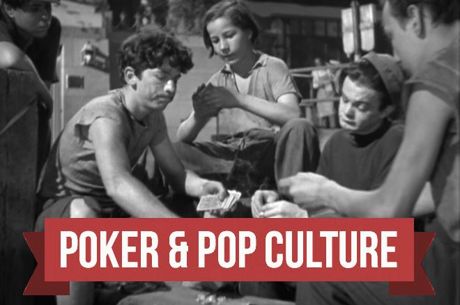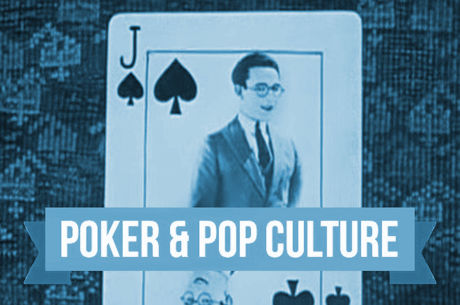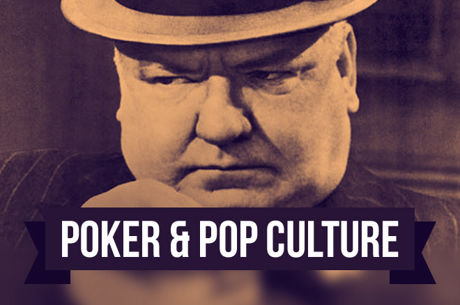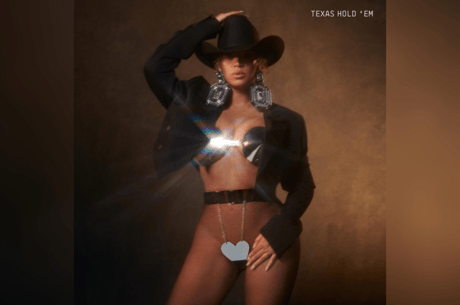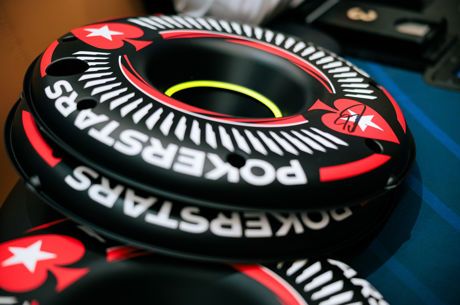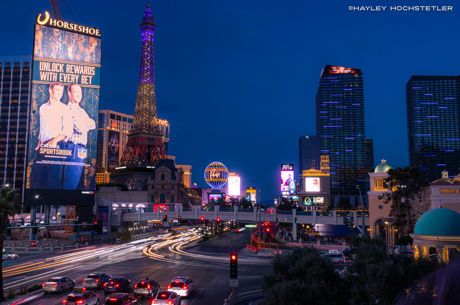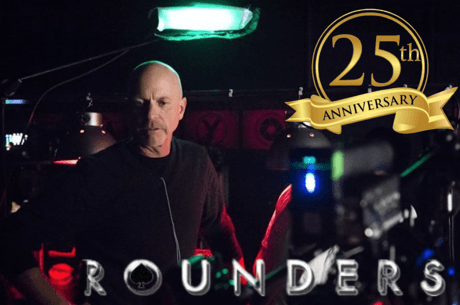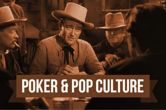Poker & Pop Culture: That Time Harry Truman Let Winston Churchill Win
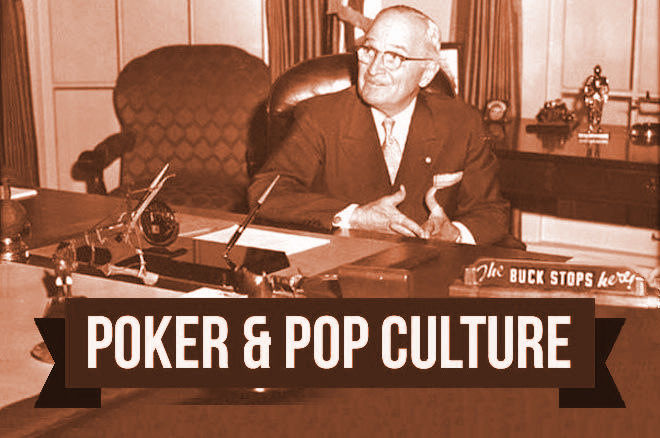
A new president now occupies the White House following Donald Trump's inauguration last Friday. While the businessman and real estate mogul isn't known for being a poker player himself (despite having owned several casinos), his contentious campaign caused many to observe the numerous poker-like strategies suggested by his unorthodox style.
In fact Trump inherits the position from a poker player, Barack Obama, who at the time of his inauguration eight years ago was known to have earlier enjoyed a weekly poker game among fellow state senators in Illinois.
The fact that numerous U.S. presidents have played poker provides strong evidence supporting the claims about the game's importance to American history. Poker was first introduced in America in the early 19th century shortly after the country itself first declared its independence, and the game evolved and grew right alongside the nation's evolution and growth. Along the way many of those holding the highest governmental office would choose poker as a diverting hobby, a serious recreation, or even a meaningful source of income.
Many of the stories about poker-playing presidents are fairly well known, at least to those with an interest in the subject. A quick search online uncovers dozens, most of which are true although there are a few well circulated ones that are either embellished or outright fictions.
The first chapter of James McManus's history of poker Cowboys Full does well to catalogue several anecdotes of presidents playing poker. Besides underscoring the importance of poker to America's story, the preponderance of such "pokerticians" (as McManus dubs them) also readily shows how poker strategy and politics frequently overlap, with both involving "players" trying to create and maintain images, to establish credibility, to weigh risk and reward �� and, of course, to bluff.
George Washington played whist for money �� and kept careful records of wins and losses when he did �� and other early presidents like James Madison and Andrew Jackson were likewise known to gamble at cards. It's not until Abraham Lincoln and Ulysses S. Grant, though, that we encounter references to poker as the game being favored by such statesmen. (Grant's poker-playing was the subject of an earlier Civil War-themed "Poker & Pop Culture" column.)
Once we reach the 20th century, though, practically every president from Theodore Roosevelt through Richard Nixon played poker. Only Woodrow Wilson and Herbert Hoover appear not to have partaken, while John F. Kennedy preferred bridge.
Today and next week I'd like to tackle this topic a little differently. Rather than retell the same stories of presidential poker, I'd like today to share three relatively lesser known ones, then next week share some less well known poker stories involving the only U.S. president ever to have "folded" by resigning the office, Richard Nixon.
Hoover Declines a Game with Harding
Warren G. Harding only served a little over two years as president during the early 1920s, his tenure cut short by his death at age 57 of an apparent heart attack. Despite the short time in office, he's remembered as having presided over one of the more corrupt administrations in the nation's history, with the Teapot Dome bribery scandal the best known of several improprieties.
Harding is also known for being one of the most avid poker players among U.S. presidents, with White House games running twice a week involving Harding and members of his "Poker Cabinet" (as they came to be known).
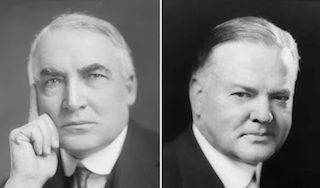
The best known story about Harding's poker playing concerns him allegedly losing a set of White House china in a poker game hosted not at the White House but at the home of a wealthy socialite named Louise Brooks (later to become the first wife of Douglas MacArthur).
That tale is more than a little sketchy, but when told usually involves Brooks and Harding playing a game of "cold hand" �� i.e., just drawing to see who got the highest card �� with the winner getting to name the stakes. Brooks won (the story goes) and asked for a set of White House china, and Harding duly paid his debt by sending her a set dating from the time Benjamin Harrison was in office about three decades before.
A lesser known story about Harding's poker playing involves a member of his cabinet who did not enjoy the game, his Secretary of Commerce Herbert Hoover. Six years after Harding's death, Hoover would himself become president and serve a single term before being succeeded by another avid poker player, Franklin Delano Roosevelt.
In this story Hoover and another member of Harding's cabinet found themselves invited to the White House for dinner, and upon arriving discovered a marathon game of poker in progress. The pair were invited to join the game, but Hoover declined.
"I had lived too long on the frontiers of the world to have strong emotions against people playing for money if they liked it," Hoover would later write in his memoirs. "But it irked me to see it in the White House."
Maybe it wasn't a coincidence that Hoover would be one of the few members of Harding's corrupt administration to escape unscathed to continue with a career in politics.
Truman Lets Churchill Win
Harry Truman's penchant for poker was well known, and like Harding he also hosted White House games in which members of his administration participated.
Details related to Truman's love of poker are relatively well known, including the fact that he went so far as to have a set of poker chips made with the presidential seal. Truman's personal motto "the buck stops here" was actually a poker-related phrase, the "buck" being an early term used to refer to the button in poker when a buckhorn knife was used to designate the position.
A sign stating the phrase was given to Truman as a gift �� from a fellow poker player, in fact �� and he kept it on his desk as a way of underscoring his ultimate accountability as president.
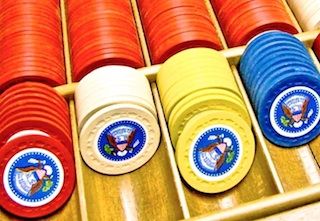
Another story that's been told fairly frequently concerns Truman's presence aboard the U.S.S. Augusta in early August 1945 when the atomic bomb was dropped over Hiroshima near the end of World War II. Press were on the ship as well, and while planning the attack and then awaiting news regarding the bombing, Truman played stud with the reporters for several days in a row.
McManus shares this one, passing along a quote from the famous reporter Merriman Smith who participated in the game. Noting how Truman and his Secretary of State James Byrnes were at odds regarding strategy surrounding the bombing, the game served Truman as a means to avoid Byrnes.
The president "was running a straight stud filibuster against his own Secretary of State," wrote Smith.
Another bit of related trivia to add here �� while the bomb was dropped from the Enola Gay, the mission also involved two other aircraft involved in weather reconnaissance, both of which had poker-themed names: Straight Flush and Full House.
Not long after WWII, Winston Churchill came to America to deliver his famous "Iron Curtain" speech in March 1946, an event which along with Joseph Stalin's response is pointed to by many as the start of the Cold War. At the time in between separate tenures as the United Kingdom's Prime Minister, Churchill came to Washington, D.C. then rode by train with Truman to Fulton, Missouri where he gave the speech.
On the way was another poker game involving Churchill, Truman, and more press. One reporter who played in the game was David Brinkley, and decades later he recounted how Truman instructed him and others to take it easy on the British statesman �� a relative newbie at poker:
It's probably a stretch to draw too many deep connections between the poker game and the speech Churchill subsequently gave. It's tempting, though, to give the Americans' "soft playing" of Churchill some symbolic significance, regarding it a kind of prelude to a significant and enduring alliance between the U.S. and U.K.
LBJ, Ronald Reagan, and the Dual-Ghia
Finally I'll share one last poker story involving two other U.S. presidents, one I seriously doubt to be true even if it is still kind of humorous to imagine.
From 1956 to 1958, Chrysler produced in limited numbers a luxury sports car called the Dual-Ghia. The name came from Dual Motors in Michigan which bought chassis from Dodge then shipped them to the automobile design firm Carrozzeria Ghia in Italy where the cars were put together. Although the original plan was to create about 150 per year, only 117 Dual-Ghias were ever made.
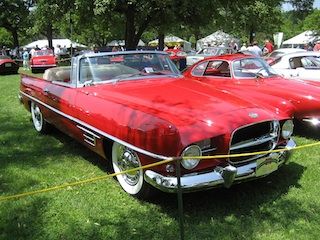
The Dual-Ghia sported a then-hefty $7,600 price tag, making it more expensive than the highest-priced Cadillacs. Several celebrities owned them including Frank Sinatra, Sterling Hayden, Glenn Ford, and Desi Arnaz (who wrecked his). Richard Nixon, at the time Dwight D. Eisenhower's vice president, apparently had one. So, too, did actor and future president Ronald Reagan.
At that time Reagan was about a decade away from becoming governor of California, but by then his acting career was already starting to slow down. He'd star with his wife Nancy in the WWII film Hellcats of the Navy in 1957, one of his very last films. His last role would be to play a gangster in The Killers (1964), then he would be elected governor a couple of years later.
Reagan was never really known as a poker player. He played football in college, rode horses, and enjoyed swimming and target shooting. Also, like just about every president, he liked to play golf. He probably played cards from time to time �� as did practically all men of his generation, especially politicians �� but his name usually doesn't turn up in the roll call of poker-playing presidents.
There is one story about Reagan playing poker, though, suggesting that he apparently lost his Dual-Ghia in a high-stakes poker game to none other than Lyndon B. Johnson who'd later become president upon Kennedy's assassination in 1963. Details of the game are scarce, and I've only ever encountered the story when reading about the Dual-Ghia, and never when reading about Johnson or Reagan �� a clue the story may well be one big bluff.
Call it "fake news" then, if you like. It wouldn't be the first instance of that sort of thing when it comes to presidents.
From the forthcoming "Poker & Pop Culture: Telling the Story of America's Favorite Card Game." Martin Harris teaches a course in "Poker in American Film and Culture" in the American Studies program at UNC-Charlotte.

